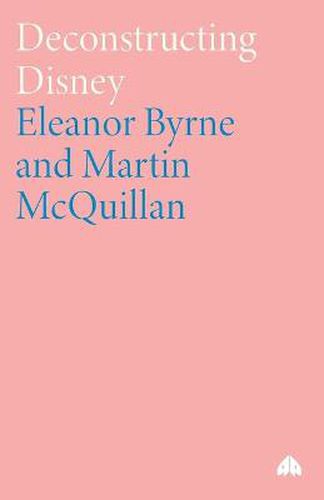Readings Newsletter
Become a Readings Member to make your shopping experience even easier.
Sign in or sign up for free!
You’re not far away from qualifying for FREE standard shipping within Australia
You’ve qualified for FREE standard shipping within Australia
The cart is loading…






This is a deconstruction of the political culture - and the cultural politics - of a Disney canon in the years since the emergence of the so-called New World Order. McQuillan and Byrne offer a critical encounter with Disney which alternates between readings of individual texts and wider thematic concerns such as race, gender and sexuality, the broader context of contemporary culture in the United States, and the global ambitions and insularity of the last great superpower. Disney films have long been synonymous with a certain conservative, patriarchal, heterosexual ideology, occupying a position centre-stage at the heart of the evil empire; demonising Disney is nothing new. What this book sets out to do, however, is to take issue with knee-jerk polarities, overturning classical oppositions and recognising that, just as the Disney text has changed, so too must the terms of critical engagement alter. If we are interested in the political circumstances which oppress us, the authors argue, then we can never know too much about Disney.
$9.00 standard shipping within Australia
FREE standard shipping within Australia for orders over $100.00
Express & International shipping calculated at checkout
This is a deconstruction of the political culture - and the cultural politics - of a Disney canon in the years since the emergence of the so-called New World Order. McQuillan and Byrne offer a critical encounter with Disney which alternates between readings of individual texts and wider thematic concerns such as race, gender and sexuality, the broader context of contemporary culture in the United States, and the global ambitions and insularity of the last great superpower. Disney films have long been synonymous with a certain conservative, patriarchal, heterosexual ideology, occupying a position centre-stage at the heart of the evil empire; demonising Disney is nothing new. What this book sets out to do, however, is to take issue with knee-jerk polarities, overturning classical oppositions and recognising that, just as the Disney text has changed, so too must the terms of critical engagement alter. If we are interested in the political circumstances which oppress us, the authors argue, then we can never know too much about Disney.